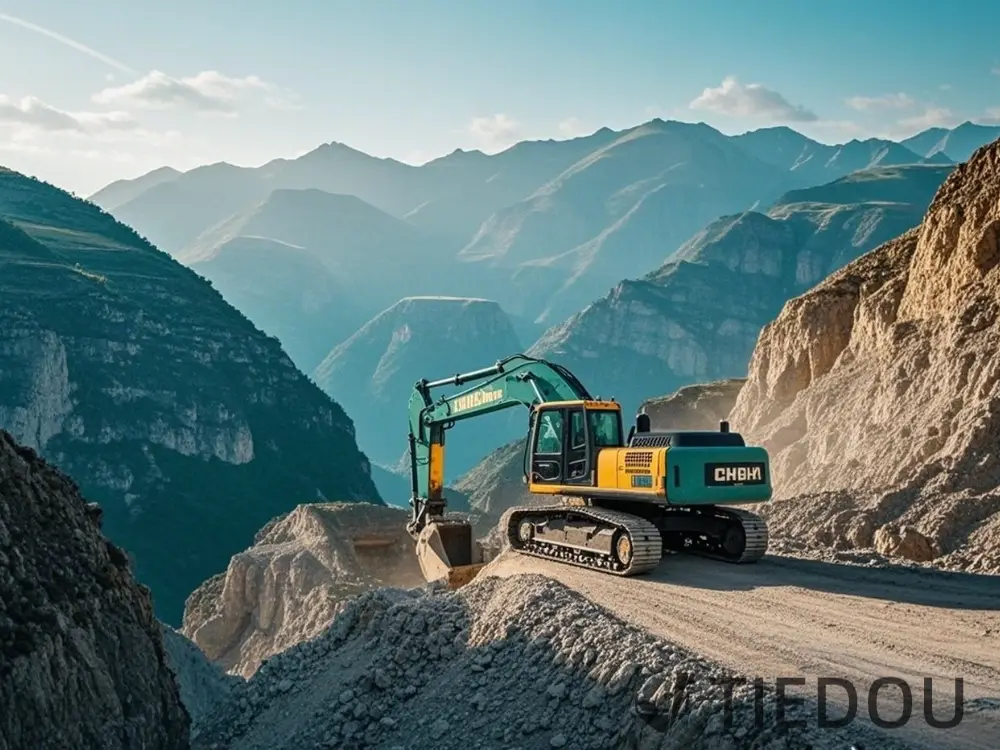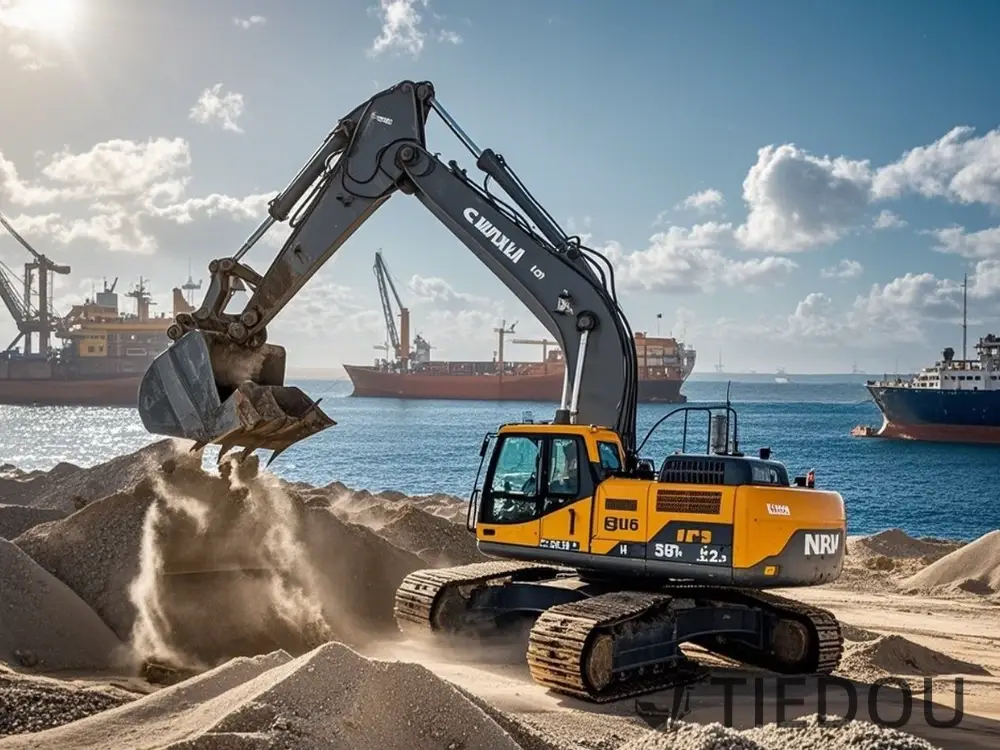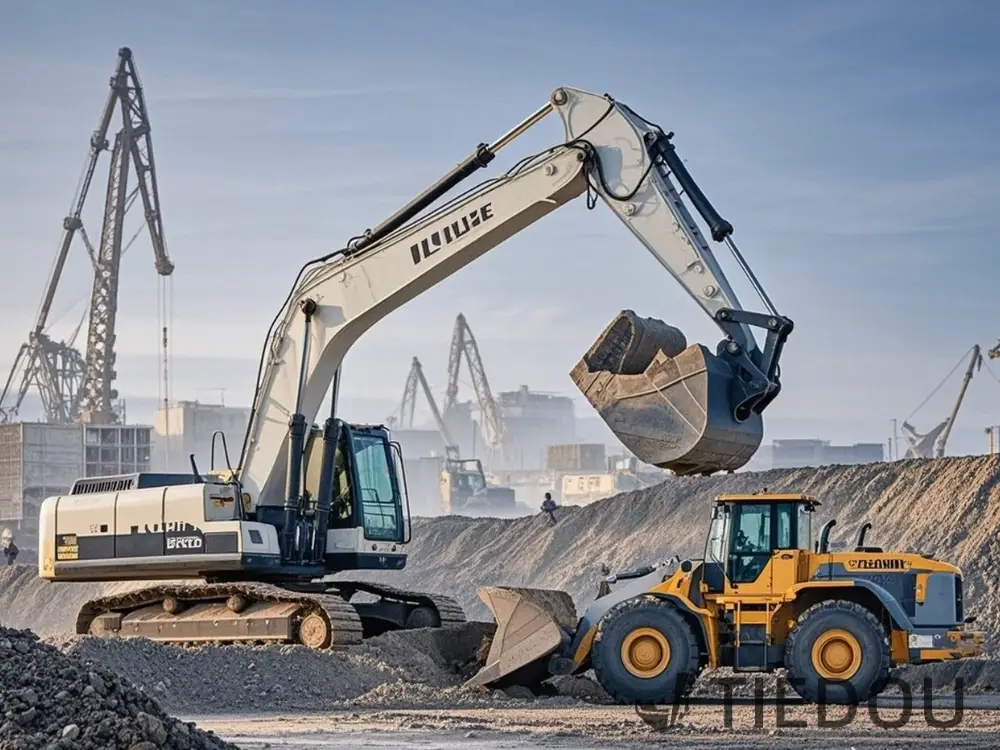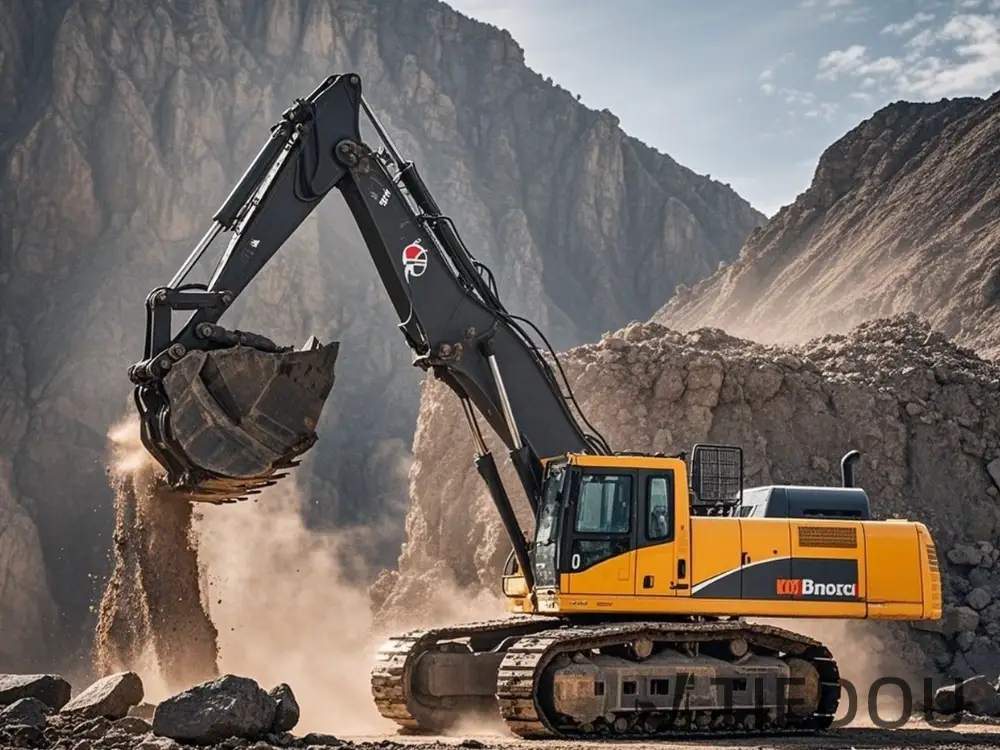In 2025, the construction machinery industry is undergoing a profound transformation driven by intelligent technologies. As a key force in this transformation, intelligent
excavators are gradually changing the traditional construction mode. Represented by major foreign construction machinery brands, remarkable progress has been made in the research, development, and application of intelligent excavators, outlining a brand - new picture for the future development of the industry.
Core Technologies and Application Scenarios of Intelligent Excavators
Core Technologies
Foreign brands such as Caterpillar, Komatsu, and Volvo are at the forefront of the technological research and development of intelligent excavators. Caterpillar's intelligent excavators are equipped with advanced sensor technologies that can monitor the operating status of the equipment in real - time, including engine working parameters, hydraulic system pressure, and the wear conditions of various components. These data are analyzed and processed through intelligent algorithms, and the equipment can automatically adjust its working mode according to different working conditions to achieve efficient operation. For example, during excavation operations, the sensors can sense the hardness of the soil and automatically adjust the digging force and speed to avoid over - excavation or under - excavation, improving work efficiency while reducing energy consumption.
Komatsu has unique advantages in intelligent control. The intelligent construction system equipped on its intelligent excavators uses the Global Positioning System (GPS) and Geographic Information System (GIS) to achieve precise planning and monitoring of the construction process. Operators can operate the equipment from a safe area far away from the construction site through a remote - control terminal, which greatly improves work safety, especially in some dangerous or harsh working environments, such as mining and deep - sea operations.
Application Scenarios
Intelligent excavators demonstrate strong adaptability and high efficiency in various construction scenarios. In urban construction, Volvo's intelligent excavators, with their environmental - friendly and intelligent features, can operate efficiently in densely populated areas. Their low - emission engines reduce pollution to the urban environment, and the intelligent control systems achieve precise digging and loading, improving construction efficiency and reducing the impact on surrounding residents.
In large - scale infrastructure construction projects, such as highway and railway construction, Caterpillar's intelligent excavators can work in collaboration with other intelligent construction machinery. Through intelligent interconnection technologies, different devices can achieve data sharing and collaborative control, forming an efficient construction team and greatly shortening the project duration.
The Impact of Intelligent Excavators on the Industry Landscape
The emergence of intelligent excavators has profoundly changed the competition pattern of the construction machinery industry. Foreign brands that master advanced intelligent technologies, such as Caterpillar and Komatsu, with their technological advantages, occupy a larger share in the high - end market. These brands can provide customers with comprehensive intelligent construction solutions, meeting customers' demands for efficient, safe, and environmentally friendly construction, and attracting the favor of large - scale construction enterprises and government infrastructure projects.
At the same time, the development of intelligent excavators also brings new opportunities and challenges to the industry. On the one hand, emerging enterprises have the opportunity to emerge in the field of intelligent excavators through technological innovation. Some enterprises focusing on the research and development of artificial intelligence and sensor technologies, in cooperation with traditional construction machinery manufacturers, inject new vitality into the development of intelligent excavators. On the other hand, traditional construction machinery manufacturers face the pressure of technological upgrading. If they cannot keep up with the development pace of intelligent technologies in a timely manner, they may gradually be eliminated in market competition.
Market Prospects and Challenges of Intelligent Excavators
Market Prospects
With the continuous advancement of global infrastructure construction, the demand for intelligent excavators will continue to grow. Especially in emerging markets, such as Southeast Asia, Africa, and Latin America, where infrastructure construction is in a rapid development stage, the demand for efficient and intelligent construction equipment is strong. Intelligent excavators, with their advantages of high efficiency, safety, and environmental protection, will have broad application prospects in these markets.
Challenges
Although the prospects of intelligent excavators are broad, they also face some challenges. First, the research and development and application costs of intelligent technologies are relatively high, resulting in relatively expensive intelligent excavators, which to some extent limits their market penetration. Second, the technical standards and specifications for intelligent excavators have not been fully unified, and the data compatibility and collaborative operation capabilities between equipment of different brands need to be improved. In addition, operators are required to have higher operating skills and maintenance knowledge for intelligent excavators and need to receive professional training, which also increases the use cost and difficulty.
Conclusion
In 2025, as a new revolutionary force in the construction machinery industry, intelligent excavators, with their advanced technologies and wide application scenarios, are changing the industry landscape and future development direction. The innovation and application of major foreign construction machinery brands in the field of intelligent excavators have set a benchmark for the industry. Although facing challenges such as technical costs, standard specifications, and talent cultivation, with the continuous progress of technology and the gradual maturity of the market, intelligent excavators are expected to play a more important role in global infrastructure construction and promote the construction machinery industry to move towards intelligence, greenness, and high - efficiency.



